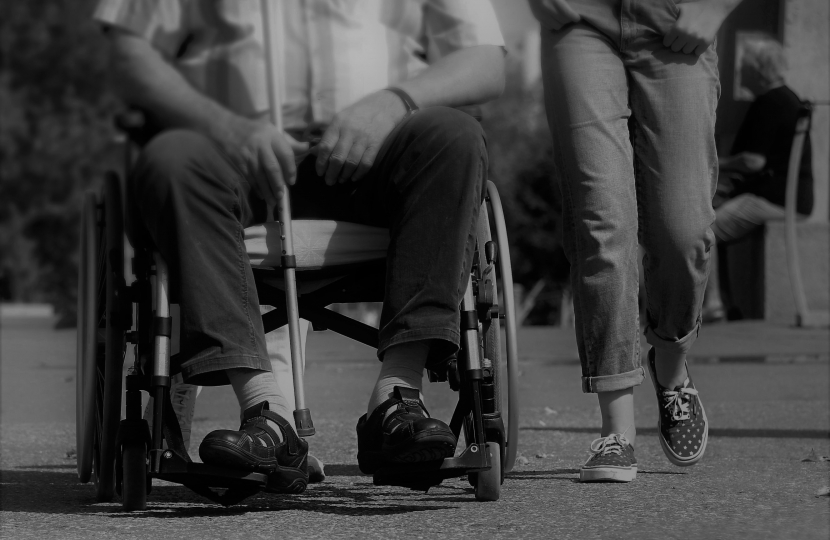
The United Nations Declaration on the Rights of Disabled Persons adopted by the United Nations General Assembly on December 9, 1975 states that all disabled persons have the same rights as other persons – and recognises the obstacles created by social institutions and society in general.
Although nonbinding, the declaration marked the beginning of a new approach to disability issues as human rights issues.
The UN Convention on the Rights of Persons with Disabilities, was adopted on December 13, 2006 – and the UK Government signed this legal Treaty in 2009.
This sets out what rights Disabled People should have, alongside international benchmarks - and covers areas including health, education, employment, access to justice, personal security, independent living and access to information.
The UK Government has made it clear that it wants the UK to lead a "global race to the top" in rights and standards, not a "competitive race to the bottom".
However, there is merit in incorporating the UN Declaration into Welsh law in order to strengthen and promote the rights of disabled people, as the Welsh Government did with Children’s rights by incorporating the Convention on the Rights of the Child into Welsh Law in 2011.
We will therefore be supporting this legislative proposal.
When I led a debate here in 2010 supporting Disability Wales’ Independent Living Campaign, the Welsh Government put down a neutralising amendment. Know everyone speaks in favour of Independent Living.
As the campaign stated “Independent Living enables disabled people to achieve their own goals and live their own lives in the way that they choose for ourselves”.
After I led a debate on Co-Production in the last Assembly, certain Welsh Government Ministers refused to use the term.
As I stated, this is “about seeing everyone as equal partners in local services—breaking down the barriers between people who provide services and those who use them” – and this “goes beyond models of service-user consultation to better delivery of health, social services and other services to an ageing population, to people facing illness and disability, to the economically inactive, and to those living in social isolation”.
In 2013, my Member Proposed Bill on Community Care (Direct Payments) (Wales) was designed to offer carers and service users choice, control and independence.
The Deputy Minister stated that she would like the principles in my Bill to be taken forward in the Social Services and Wellbeing (Wales) Bill – and I therefore agreed to withdraw it and work with the Welsh Government on this.
The subsequent Social Services and Wellbeing Act Part 2 Code of Practice states that “Local authorities must seek to empower people to produce innovative solutions through local networks and communities” and that this “means putting robust arrangements in place to secure involvement of people in the design and operation of services”.
It also stated that well-being includes key aspects of independent living, as expressed in the UN Convention on the Rights of Disabled People, and that:
“the approach to promoting people’s well-being, is one that recognises that care and support can contribute to the removal of barriers in line with the social model of disability - recognising the Welsh Government’s framework for Action on Independent Living, which “expresses the rights of disabled people to participate fully in all aspects of life”.
Despite this, I hear almost daily from disabled people, communities and carers who are having to fight for the support and services they need to enable them to lead an ordinary life, because highly paid people in power don’t want to share it and believe they know better.
We've had well-meaning legislation that's supposed to be about designing and delivering services with people rather than for and to them, and yet we hear stories like wheelchair users still being denied access to the coastal path in Flintshire - and the deaf community in Conwy having to go to the Ombudsman after the Council decommissioned their British Sign Language services.
The reality is that more and more people are falling into avoidable crisis and that there is a need for greater integration, independence and empowerment for disabled people.
As Disability Wales state, that if the UN Declaration were incorporated into Welsh Law, this would:
- raise the profile of disabled people rights within Welsh Government
- Require consideration of disabled people’s rights in legislation and policy brought forward by Ministers
- Establish an accountability framework ensuring strategic implementation and monitoring as well as greater consistency across legislation and policy
- and strengthen involvement of disabled people and their representative organisations in informing and influencing policy.